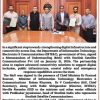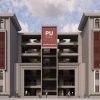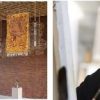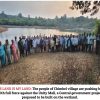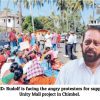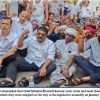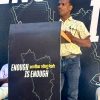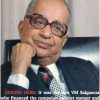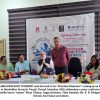Goa is abuzz with excitement as vintage bike and car owners, users, collectors and fans are decking […]
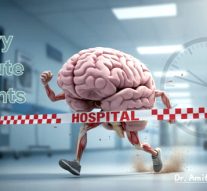
BE-FAST: Every Minute Counts — A Call to Action on World Stroke Day
Uncategorized October 24, 2025By Dr Amit Dias
On the occasion of World Stroke Day, observed on the October 29, Dr Amit Dias emphasizes why we need to B.E.F.A.S.T. to recognize the signs of stroke and get to the hospital on time – Time is brain, he says, as he explains its importance, “Every Minute Counts !!”
EVERY year, October 29 marks World Stroke Day, a global initiative to raise awareness about one of the world’s leading causes of death and disability — stroke. The theme for 2025, “Every Minute Counts,” highlights a life-saving truth: when it comes to stroke, TIME is BRAIN. For every minute that treatment is delayed, millions of brain cells die. Recognizing the warning signs early and getting immediate medical help can mean the difference between life, disability, and death.
This year’s campaign calls for collective action and prevention. The emphasis in 2025 is clear and urgent — early recognition and rapid response save lives. October 29 also happens to be the birth anniversary of our beloved Dr. Chicot Vas who passed away soon after his birthday last year at his residence in Chorao, Goa. He started the department of Neurology at the Goa Medical College and made significant contributions to brain health in the state of Goa.
Understanding Stroke
A stroke occurs when blood flow to a part of the brain is interrupted, depriving brain tissue of oxygen and nutrients. Within minutes, brain cells begin to die, making prompt treatment absolutely critical.
Types of Stroke
• Ischemic Stroke – The most common type (about 85% of cases), caused by a blood clot or plaque obstructing blood flow to the brain.
• Hemorrhagic Stroke – Caused by bleeding in or around the brain due to a ruptured blood vessel.
• Transient Ischemic Attack (TIA) – Often called a “mini-stroke,” this is a temporary blockage that serves as a warning sign for a future major stroke.
Recognising Stroke: B.E. F.A.S.T. Saves Lives
One of the most powerful tools in stroke care is public awareness. The B.E. F.A.S.T. mnemonic helps people quickly recognise stroke symptoms and act immediately:
Why do we say Time is Brain?
In the case of an ischemic stroke, clot-busting drugs (thrombolytics) and procedures like thrombectomy can restore blood flow to the brain — but only if administered within a critical window of time. These facilities are only available in bigger hospitals like GMC and some of the more advances private hospitals. Delays can mean permanent disability or death. For hemorrhagic strokes, early surgical intervention or medical management can reduce bleeding and save brain tissue. That is why recognising the signs early and seeking emergency medical care without delay is crucial. Time is Brain… every minute loss leads to loss of brain cells and more brain damage.
Risk Factors: What Can We Control ?
A Stroke can be prevented, we need to know the risk factors and take steps to prevent and control them.
Controllable Factors
• High blood pressure
• Diabetes
• High cholesterol
• Smoking
• Alcohol use
• Obesity and sedentary lifestyle
Uncontrollable Factors
• Age (higher risk after 55)
• Family history and genetics
Prevention: A Public Health Priority
Simple steps can have a profound impact on the prevention of stroke.
• Regular Screening: Monitor blood pressure, sugar, and cholesterol.
• Healthy Lifestyle: Eat a balanced diet low in salt, sugar, and unhealthy fats.
• Physical Activity: Even 30 minutes of brisk walking daily can help.
• No Tobacco: Quit smoking to protect your blood vessels.
• Moderate Alcohol: Excessive consumption increases stroke risk.
Treatment and Rehabilitation
Stroke treatment depends on its type and severity:
Ischemic Stroke: Clot-busting drugs (thrombolytics) or mechanical thrombectomy.
Hemorrhagic Stroke: Surgical repair or medical management of bleeding.
Recovery does not end at hospital discharge. Rehabilitation — including physiotherapy, occupational therapy, speech therapy, and psychosocial support — is essential to restore function and quality of life.
A Collective Responsibility
Stroke impacts individuals, families, and entire communities. The economic burden is significant, but the human cost is far greater. By raising awareness, improving prevention, and ensuring quick access to treatment, we can dramatically reduce the impact of stroke.
On this World Stroke Day, let’s pledge to:
• Learn and share the B.E. F.A.S.T. signs.
• Take steps to reduce our personal risk.
• Support public health initiatives for better stroke care.
• Stand by stroke survivors and their families.
